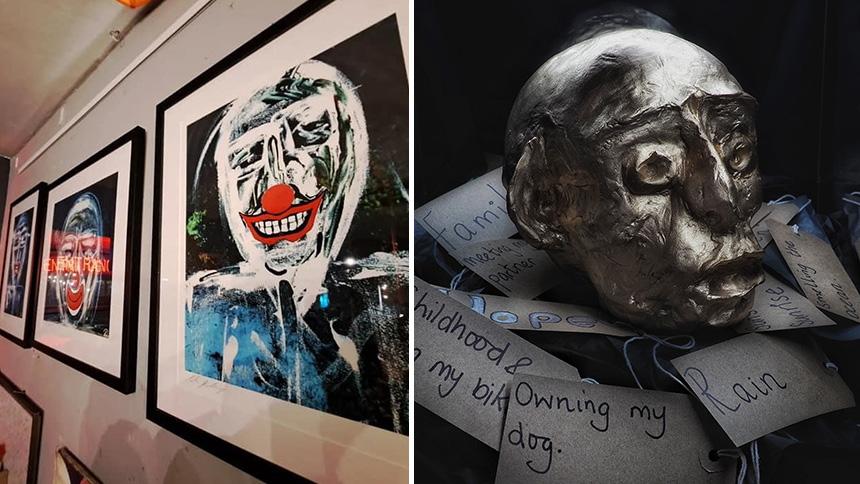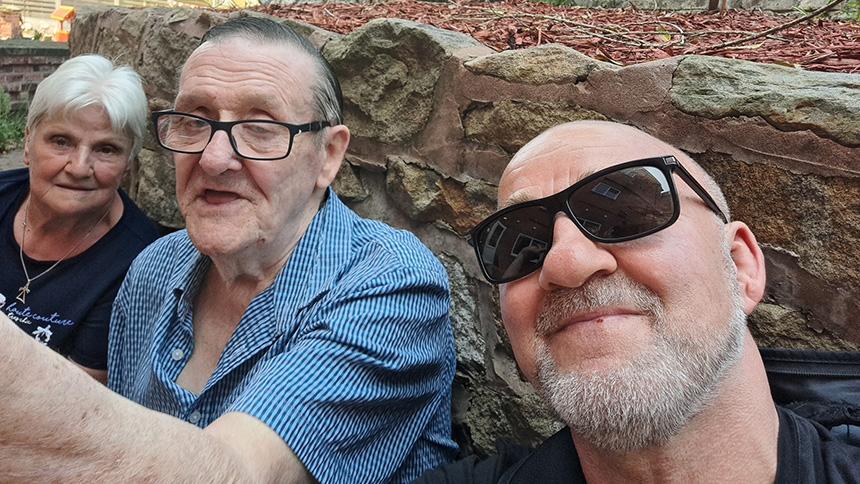Coming to terms with Dad’s dementia and raising awareness through art
Neil Eckersley, in Lancaster, created an art series called ‘I know you’re in there’ in response to his late father’s dementia.
At school I was very sporty and went on to win bronze in judo at the 1984 Olympics.
I was encouraged to develop other interests, and this is when I picked up my first easel.
I have dyslexia and feel like art is more powerful than what I could ever dream of saying with words.
When my older brother died suddenly, I used art as a sort of therapy.
My recent work was a way of coming to terms with Dad’s dementia.

Getting muddled
We realised Dad may have dementia as he was getting more and more muddled on the phone.
Lockdown accelerated Dad’s condition and Mum was exhausted after caring for him alone.
She’s of the generation that doesn’t like to accept help and eventually, she ended up in hospital.
We decided to seek a diagnosis for Dad and he went into respite care.
It felt like we were in a storm
I started painting before Dad died but I didn’t know why.
At the time, we felt like we were in a storm.
But now I’ve been able to reflect, and I know exactly where the art came from.
My wife and I were working in Norway and struggled to get home during lockdown.
I remember seeing Dad for the first time behind a screen – it was like a prison.
Dad was so confused but as soon as I took my mask off, he recognised me and his expression changed.
I think this is what inspired ‘The three faces of dementia’.
Dad’s laughter was infectious which inspired ‘It’s not a laughing matter’. There were moments of laughter, but dementia is not a funny condition.
I also sculpted a golden head called ‘Memories are golden’.
When Dad moved to residential care, I found loads of photographs, music and videos to try to trigger precious memories.
Turning heads
They’re not attractive pieces, but dementia is not an attractive condition.
Dementia is the UK’s biggest killer so it’s strange that we’re not having deeper conversations about it.
One day I’d like to present my work in the House of Commons lobby.
When I displayed the art in a local charity shop, it stopped the binmen. If it can stop the binmen, it can definitely get politicians to pay attention.

Neil (right) with his mother and father
Sparking conversations
I want my work to spark conversations about dementia and the importance of an early diagnosis.
People might be scared to talk about dementia or get a diagnosis because they think they’ll immediately have to go into care. But this is a myth.
Dad was brilliant because he put his house in order right away financially and emotionally.
He told me he was proud of me and that he loved me, which is a very strong thing to be left with.
If people don’t have these conversations, that gets lost.
Influence our work
Help shape our work through Dementia Voice, and use your experience to ensure everything we do reflects the needs of people affected by dementia.



Carole Simpson
saysKev Lightfoot
says